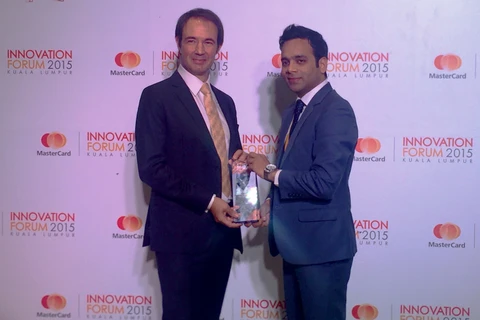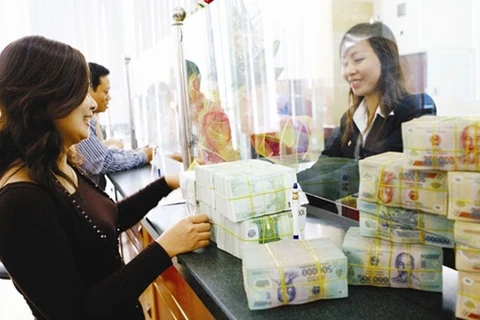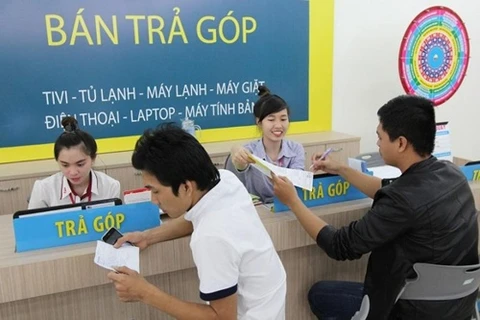Hanoi (VNA) - Consumer lending is seeing only a slow rise ahead of Tet (Lunar New Year), despite commercial banks offering preferential loans to both individuals and enterprises, Dau tu Chung khoan (Securities Investment) newspaper reported.
Vietnam International Commercial Joint Stock Bank (VIB) is offering auto loans to customers at 7.6 percent per year. The credit limit is up to 80 percent of the car value and the loan is for a maximum duration of eight years. Early repayment is free of charge from the fourth year of the loan.
Car loans at preferential rates of 7 percent per year are also applying at HDBank.
Maritime Commercial Joint Stock Bank (MaritimeBank) is also launching loans at 5.99 percent per annum for customers who need money to shop for Tet, and at zero percent to customers who take installment loans via credit card.
Military Commercial Joint Stock Bank (MB) is also funding up to 90 percent of their customers’ capital needs for purposes of production and business.
Similarly, to help small- and medium-sized enterprises (SMEs) during the festive season, Asia Commercial Joint Stock Bank (ACB) has offered loans at an interest rate of 7 per cent per year, with a ceiling limit of VND4 trillion (176.21 million USD).
The ACB also has a promotional lending product at 7.5 percent per year for business households borrowing capital to supplement capital and expand business premises and for homebuyers.
Though the demand for capital is rising sharply ahead of Tet, industry insiders said supply and demand are unlikely to match.
General director of a bank, who did not wish to be identified, said that though this was a good time to develop outstanding loans, it would not be that easy as customers are expecting interest rates to drop further, an expectation that cannot be satisfied because the banks’ cost of mobilising capital tends to rise close to Tet. In fact, mobilisation interest rates have again increased at many banks by 0.2 to 0.4 percent per year, depending on the terms.
Besides, financial expert Huynh Trung Minh said that the US Federal Reserve’s 25-percentage point hike in interest rate (from 0.25-0.5 to 0.5-0.75 percent per year) has strengthened the US dollar and put pressure on the dollar/dong exchange rate. When exchange rates rise, interest rates in dong go up as a sufficiently attractive interest rate gap is needed to prevent people from switching to depositing in US dollars, Minh said. This partly explains the slow growth in lending, though banks launched promotional products at the end of 2016.
In addition, many customers are hesitant to take preferential consumer loans, home loans or home repair loans because they are worried about high lending rates after the promotional period is over.
Lending interest rates are also forecast to inch up during the early months of 2017 because of increasing input costs.
Banking expert Tran Du Lich said that further reduction of lending rates in 2017 would be tough as inflation has shown signs of rising and there is pressure as another Fed interest rate hike is expected this year.-VNA
























